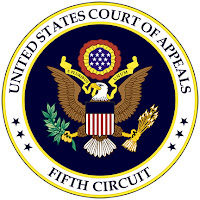The panel of Judges Jennifer Elrod, James Ho, and Cory Wilson found that the FDA failed to follow the legally-required process when loosening mifepristone regulations in 2016 and 2021. These changes (among other things) legalized the prescription of mifepristone later in pregnancy, allowed mifepristone to be sent to customers via mail, removed required office visits before obtaining a prescription, and allowed medical professionals other than doctors to prescribe it.
Alliance Defending Freedom, the legal firm representing a coalition of pro-life medical professionals in its challenge against the FDA, praised the panel's decision.
“The 5th Circuit rightly required the FDA to do its job and restore crucial safeguards for women and girls, including ending illegal mail-order abortions,” said ADF Senior Counsel Erin Hawley, vice president of the ADF Center for Life and Regulatory Practice.
“The FDA will finally be made to account for the damage it has caused to the health of countless women and girls and the rule of law by unlawfully removing every meaningful safeguard from the chemical abortion drug regimen. The FDA’s unprecedented and unlawful actions did not reflect scientific judgment but rather revealed politically driven decisions to push a dangerous drug regimen without regard to women’s health or the rule of law.”
The court criticized the FDA for ending a requirement that abortion businesses report non-fatal adverse events and then using the resulting lack of data to support decisions loosening safety regulations.
This decision left in place the FDA's 2000 approval of mifepristone and its 2019 authorization of a generic version.
“The Fifth Circuit Court of Appeals concluded that the FDA’s actions loosening the regulations involving Mifeprex were unlawful,” said Carol Tobias, president of National Right to Life. “Our hope is that today’s decision will be affirmed by the U.S. Supreme Court.”
“Today’s ruling, though not in effect because of the prior stay by the Supreme Court, would also reinstate long-standing safety protocols for women which were removed during COVID and made permanent because of pro-abortion pressure on the FDA,” said Tobias.
This case, Alliance for Hippocratic Medicine v. U.S. Food and Drug Administration stems from a coalition of pro-life doctors who argued that the FDA unlawfully fast-tracked the approval of mifepristone in 2000 through a process intended for the treatment of life-threatening illnesses. These physicians' complaints were stonewalled by the FDA for over 20 years before reaching federal court.
US District Judge Matthew Kacsmaryk in the Northern District of Texas was receptive to this argument, and he issued a national injunction overriding the FDA's approval of mifepristone. His injunction was put on hold by higher courts.

